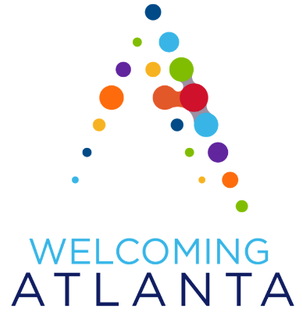DACA Resources
What Can I Do At The Moment?
THOSE WHO HAD OR OBTAINED DACA ON OR BEFORE JULY 16,2021 ARE STILL PROTECTED : U.S district courts have deemed DACA as “illegal”. However, DACA has temporarily delayed the deportation of people without documentation who came into the U.S as children.
For an up-to-date timeline of DACA related litigation, visit the National Immigration Law Center website .
Trusted Organizations & Resources
The current coronavirus (COVID-19) pandemic has caused confusion across communities regarding the fate of DACA. As such, we highly recommend obtaining your information on DACA from the following trusted organizations:





What Is DACA?
DACA (Deferred Action for Childhood Arrivals) is an immigration policy put in place by President Obama in 2012. Under the program, qualifying undocumented immigrants who were brought to the U.S. as children were spared from deportation and made eligible for renewable work permits and driver’s licenses. There are roughly 800,000 DACA recipients who call the United States their home.
Who Are DREAMers?
DREAMers are unauthorized immigrants who have not necessarily been granted deferred action for childhood arrival. There are 2 million individuals who consider themselves DREAMers. The Center for American Progress (CAP) reports that about 8 million US citizens have at least one unauthorized family member residing within the same household. The CAP also reports that 5.9 million citizen children reside with at least one unauthorized family member.
DACA Recipient’s Contributions to Georgia and the City of Atlanta
An estimated 47,000 Georgians are currently enrolled in or eligible for DACA. Georgia’s DACA recipients pay $66 million per year in state and local taxes. Barring DACA recipients from work and school stands to strip Georgia of $28 million in revenue. Further, barring DACA recipients from work permits and driver’s licenses adds a further impact to the well-being and good standing of many communities across the city and state. The Georgia Budget and Policy Institute has compiled a list of briefs providing insight on the current and potential DACA population and their state impact as it relates to in-state tuition, workforce and more. More information can be found at: www.gbpi.org/tag/daca/
The City of Atlanta supports the DACA program and stands in solidary with DACA recipients and DREAMers.
Additional Resources
Mental Health Resources
Communities across the country are currently awaiting a decision from SCOTUS regarding the legality of DHS’s decision to terminate the DACA program. A DACA rescission would have devastating impacts on the lives of over 660k recipients, in addition to their parents, children, siblings, spouses, friends, and employers.
As we await a decision from SCOTUS regarding DACA, we believe it is extremely important to continue to raise awareness about resources that can help community members. Below is a list of mental health resources that may be helpful for impacted communities.
- Informed Immigrant Resource Library – Mental Health: Taking Care of Yourself and Loved Ones – A comprehensive information center that includes journal articles on topics such as suicide and substance abuse, state-specific resources, and a national directory of Latinx therapists for the Latinx community. (Source: FWD.us/Informed Immigrant)
- How to Support Students dealing with Anxiety – A one-pager developed by Informed Immigrant listing simple and practical coping strategies and skills that impacted individuals can incorporate into their daily lives. (Source: FWD.us/Informed Immigrant)
- United We Dream UndocuHealth Initiative – The UndocuHealth Initiative aims to support impacted communities experiencing stress and anxiety related to their immigration status. Their Emergency Toolkit provides information on the correlations between trauma and the physical effects of stress, tools for stress reduction, including breathing exercises, as well as a list of online resources. (Source: United We Dream)
Education and Scholarship Resources for DACA Recipients
As a DACA recipient, you can and should still go to college! Lack of legal status should not prevent you from applying to college, scholarships, or internships. Below are helpful tips to use throughout the application process.
- College Guide for Undocumented Students
- Q&A Paying for College as an Undocumented Student
- List of Financial Aid for Undocumented Students By School
- Scholarships for Undocumented Students
- DREAM Educational Empowerment Program (DEEP) through United We Dream
- Illinois Association for College Admission Counseling
- MALDEF Scholarship Resources
- Expert Advice and Resources for Undocumented College Students
- Students’ Guide to DACA Phaseout
Note: Although the state of Georgia and the Georgia Board of Regents bans undocumented and DACAmented students from enrolling in the most selective research universities in the state of Georgia, including University of Georgia, Georgia Tech, Medical College of Georgia and Georgia College & State University, college is still within reach.
In November 2016, it was announced that Georgia State University and Augusta University will allow students without lawful status to apply and be admitted. While they would have to pay the out-of-state tuition rate even if they live in Georgia, this is an important step towards expanding the educational opportunities for immigrants. For more information, look at this Georgia State statement and Augusta University Statement.

